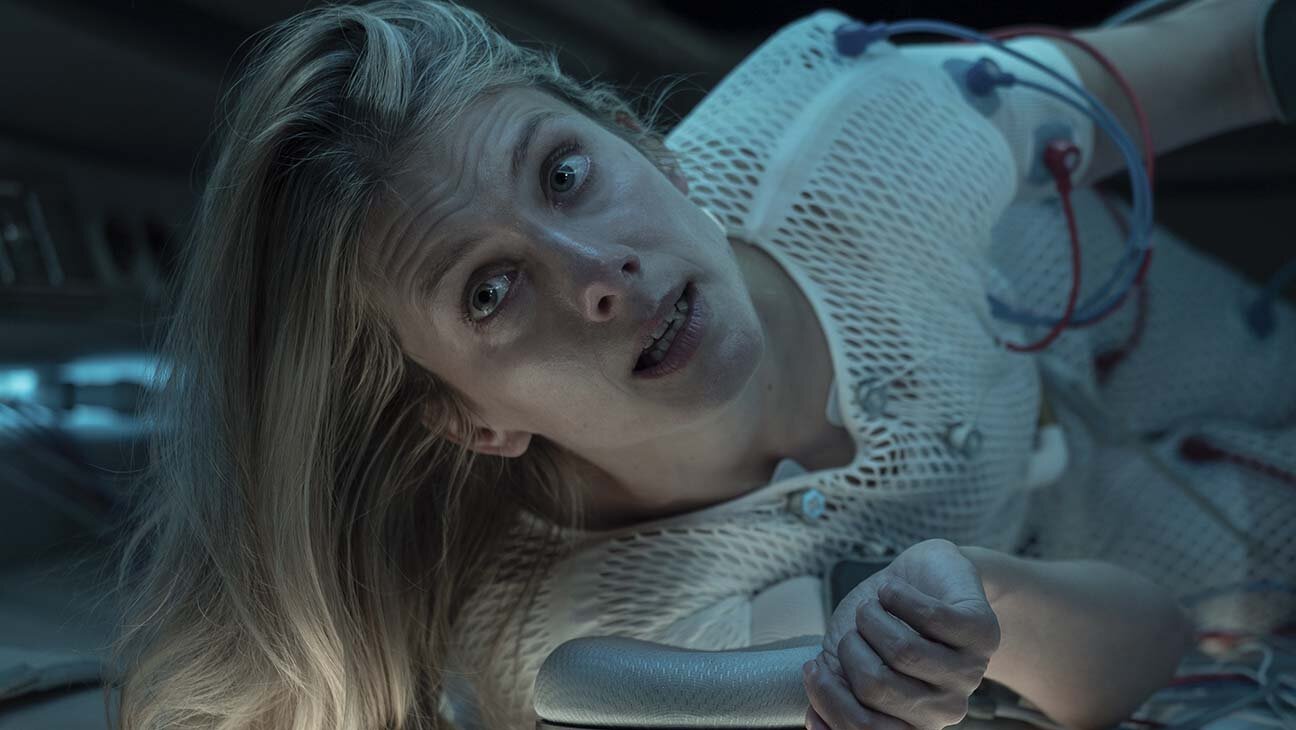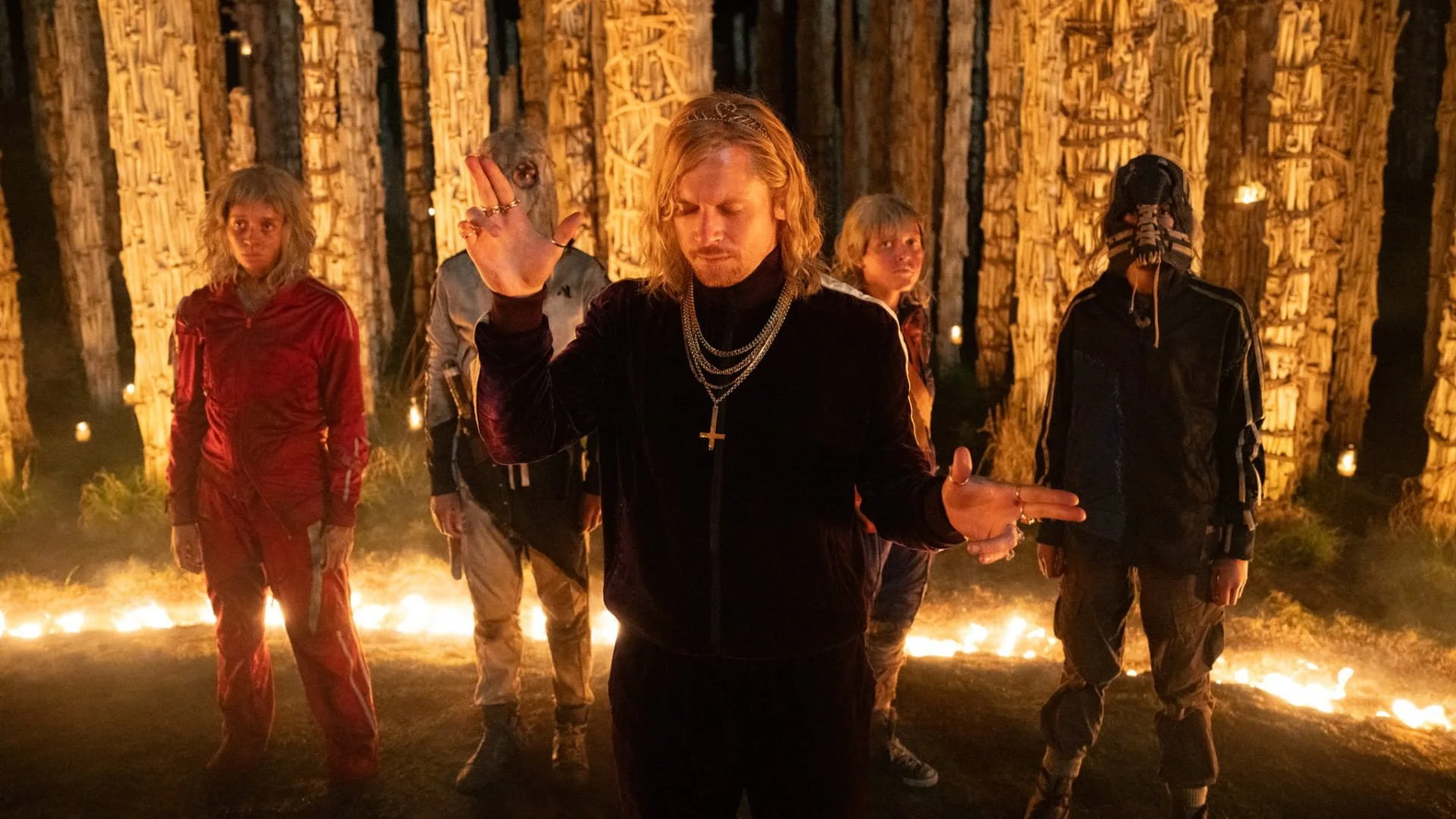Review: Oxygen (2021)
French horror filmmaker Alexandre Aja must be a fan of Buried, the 2010 thriller starring Ryan Reynolds, because he essentially remade that film with his latest effort, Oxygen. Sure, there’s a science-fiction setting, but the premise is the same: roughly 100 minutes of a movie star (Mélanie Laurent) stuck inside a coffin, or in this case, a cryogenic chamber. Aja, famous for the grisly violence and twisty narrative of High Tension, crafts a film that attempts to mine maximum tension from the restricted setting, but only half succeeds. While there’s plenty of claustrophobic misery to be had watching Oxygen, the film doesn’t seem to trust its basic premise, and unlike Buried, has to rely on narrative surprise to amplify the thrills once the filmmaker loses interest in the restricted scenario.
Not that Oxygen leaves the cryogenic chamber aside from during flashback sequences. The film stays in the chamber as Laurent’s Elizabeth Hansen tries to recover her memories and figure out a way to repair the damages to the chamber before it runs out of oxygen in 90 minutes. Aja proceeds mostly in real time, making us feel each panicked reaction and gasping breath. And boy do we feel them. Few films rely as heavily on sound design as this one does, with each of Laurent’s laboured breaths a reminder of the dwindling oxygen supply and the retreating likelihood of rescue. There’s plenty of tension to be had in such a scenario, and Aja and writer Christie LeBlanc create a variety of sequences in which Elizabeth struggles against time within the confined space. She fights off hypo needles with sedatives and argues with the A.I. (voiced by Mathieu Amalric) and people over the phone as she desperately tries to stay alive. The film stacks the deck against Elizabeth and mines as much discomfort from the scenario as possible. It’s pretty exciting until it becomes exhausting.
About 40 minutes into the film, it becomes obvious that the filmmakers don’t trust the simple scenario because they juke up the story with endless plotting. For a film that relies so much on presenting a visceral experience—the viewer being trapped inside the confined space with Elizabeth and feeling her discomfort—it’s oddly exposition heavy. Much of the runtime is devoted to conversations that explain away each new problem and Elizabeth’s amnesia when she first wakes up makes it necessary to spend much of the film simply explaining who she is and why she’s in there. Setting up the mystery of why she’s in the chamber is narratively effective, but less effective is the expansive worldbuilding that takes place entirely within flashback. Or the twists.
Aja loves twists and he piles them on here to a point of absurdity. First there’s the reveal about where Elizabeth actually is, then about who she is, and then about what is actually going on in the world outside the chamber. The first twist, accompanied by an endless zoom-out that plays like a reverse of the opening shot of Robert Zemeckis’s Contact, is fun because it confirms our fears and amplifies the stakes. But subsequent twists simply grind down the viewer’s sympathy. One or two issues to overcome keep the tension high, but endless problems make it all seem like an elaborate game and make the act of watching the film similar to being stuck in a contraption from a Saw movie.
If the film were a theatrical release, there’s a chance it would play better, as the claustrophobic on-screen situation would be amplified by the confined theatrical setting. But it’s a Netflix release that assumes you’ll be on your phone or watching on your phone while it plays. So without the massive screen and the overwhelming sound of a theatre, it doesn’t capture your attention to the degree that a film like Buried did in a dark theatre with other invested viewers. The film has to fight against your temptation to simply check your phone to break the tension, and so it has to escalate the situation on screen to the breaking point.
There’s the makings of an effective short film here, but the feature version, as currently available on Netflix, is a tense, but frustrating horror thriller limited by the vehicle of its presentation and the eventual exhaustion of the on-screen situation. It’s true that horror films often wear a viewer out, but you’d hope it’s a result of terror, not tedium.
5 out of 10
Oxygen (2021, USA/France)
Directed by Alexandre Aja; written by Christie LeBlanc; starring Mélanie Laurent, Mathieu Amalric, Malik Zidi.



This mockumentary starring Matt Johnson and Jay McCarrol is a complex metafiction farce and a loving portrait of friendship and Toronto.